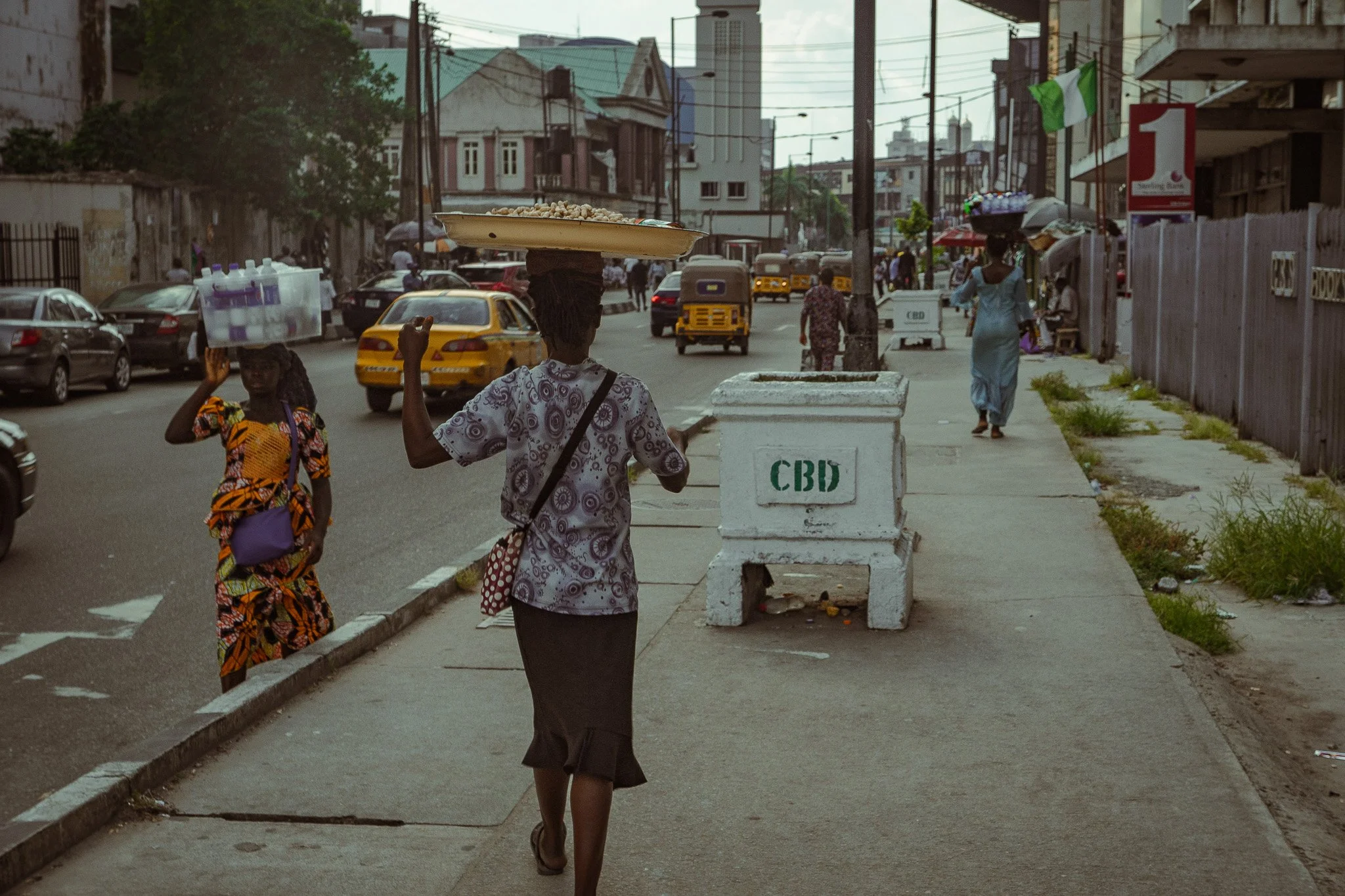Black? No, You’re African
A DIFFERENT KIND OF EMPOWERMENT (3)
Central Business District Lagos, Nigeria | 2018 by Funeh Aliu
Twice since landing on North American soil, I've been slapped with the label "not Black enough."
In the whirlwind of the 2020 BLM movement, I got embroiled in one of those debates. Armed with what I thought were killer points, I unleashed my perspective and was swiftly shut down. My argument fell flat without being addressed like an inflatable dancing man with no air. There she was, a lady in the group, pointing her finger squarely at me:
“You don’t know what it means to be Black. You’re African”.
Now, I am a dark-complexioned Nigerian with a crown of curly black hair. So she wasn’t suggesting that I wasn’t dark enough. Ironically, if blackness were based on genetic qualities, most Africans would be the Blackest, boasting nearly pure African ancestry. According to Katarzyna Bryc's article, The Genetic Ancestry of African Americans, Latinos, and European Americans across the United States: Genome-wide ancestry estimates of African Americans show average proportions of 73.2% African, 24.0% European, and 0.8% Native American ancestry. This suggests that Blacks in America, through admixing, are, on average, about a quarter White.
Her words were more than skin deep. She was implying that I lacked a fundamental understanding of American Black history. To her, I lacked awareness and alignment with Black culture and values. My political stance didn’t scream "ally," but someone lurking on the opposing team. Ultimately, she was suggesting that I didn’t fit the mould or follow the unspoken rules that every Black American is expected to adhere to based on their shared history. Blacks are supposed to recite from this unwritten script and act with the awareness that they are part of a unit.
James B. Ewers Jr. writes about this in his article, What Does It Mean to Not be Black Enough:
It is my belief that many of the characteristics attributed to Black people have hurt us. We have been pigeon-holed into being and acting a certain way. If we don’t conform to this construct, then we are labelled as not Black enough. If our positions don’t agree, then some would cast us aside… What I find to be troubling is that it is us saying that we are not Black enough. How can that be?
Most Blacks in America have a similar background linked with slavery, segregation and discrimination. And where there's history, there's culture. So, it makes sense that, over time, this shared history gave birth to a distinct Black culture within the Black community. I speculate that having a culture with physically identifiable members made it convenient to use race and culture synonymously. The terms Black, White or Asian became descriptive of the race and, more importantly, the culture within these groups.
The culture of Black people in America was essentially homogenous until volunteer immigration from Africa in 1965 after the signing of The Immigration and Nationality Act of 1965. The Act eliminated national origin, race, and ancestry as the basis for immigration. This new wave of Blacks born outside America coming in meant that Blacks with a different history and culture would now be living in North America. Unlike the Blacks who arrived earlier, shackled against their will, this new wave arrives voluntarily, eyes wide open to the opportunities that await. By moving to Canada or the US, they often free themselves from metaphorical shackles imposed by their former countries’ economic, political and social situations that held them back from achieving their full potential.
Now, these "new Blacks" bring with them a different cultural flavour. Their mindsets? Untouched by the gloomy shadow of the perceived limitations of slavery's history. They are often not acting Black.
The strong correlation between culture and race in America has allowed the term Black to be used interchangeably to describe both. Since it is generally accepted that race cannot be altered, it, in turn, encourages the delusion that Blacks are pawns in a hopeless fate that lies in the hands of structural forces just beyond their reach. It fosters the perspective that nothing can be done within Black communities to change their relatively poor social and economic outcomes.
However, if we can perceive ‘Black’ for what it is—a set of values, a lifestyle—guess what? We quickly realize that we can tweak aspects of our culture to drive favourable outcomes in areas we desire change. Suddenly, we're not just pawns; we’re empowered. We're game-changers. So, let's embrace the power of culture-shifting.
